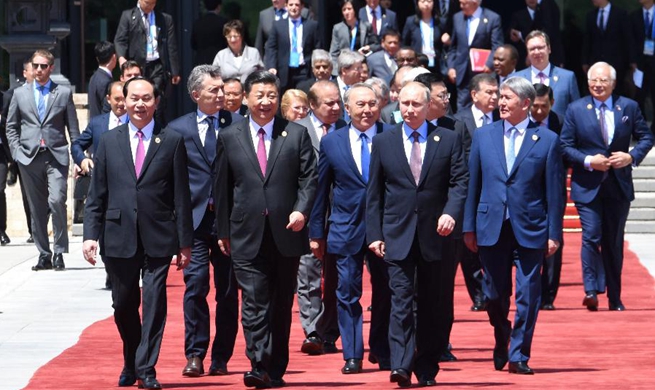MEXICO CITY, Jan. 12 (Xinhua) -- Private-sector investment and consumer spending in Mexico both showed greater signs of weakening in October 2017 than experts had anticipated, according to data released on Friday.
Gross fixed investment dipped by one percent in October compared to the previous month, shrinking for the second month in a row, the National Statistics and Geography Institute (Inegi) said in its periodic report.
In September, investment in physical assets -- a benchmark of corporate financial health -- contracted 1.3 percent.
Corporate purchases of machinery, real estate and other fixed assets were down 2.6 percent in October, while spending in construction was down 1.6 percent.
Mexico's Banorte-Ixe bank said companies may be holding back on investing due to uncertainty over the North American Free Trade Agreement (NAFTA) between Mexico, the United States and Canada, which is being renegotiated, and Mexico's July presidential elections, whose outcome is hard to predict.
"It's likely investors will postpone their projects until they have greater certainty regarding the prospects of a successful renegotiation of the North American Free Trade Agreement and the political panorama following this year's presidential elections," the bank said.
Consumer spending in Mexico slipped 0.8 percent in October, compared to the previous month, marking its first contraction after two months of growth, said Inegi.
Consumer spending on national goods and services shrank 0.6 percent, while spending on imported goods and services plummeted 2.7 percent.
Financial group Citibanamex had forecast a 0.2-percent dip in consumer spending.
"Consumption already appears to be reflecting the effects of greater inflation," Citibanamex said in a report to clients.
Inflation in Mexico hit a 16-year high in 2017, reaching 6.77 percent, driven by a depreciating peso and higher prices for gasoline.
Should NAFTA talks drag on, instead of concluding in the first few months of 2018, that uncertainty "could link up with the 2018 elections" to generate even more economic volatility, financial group Monex warned.

















